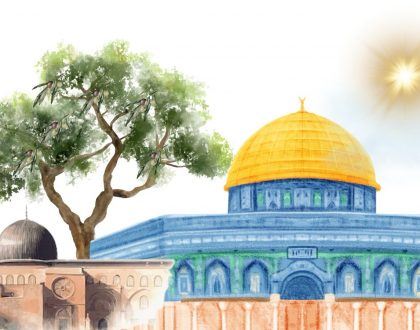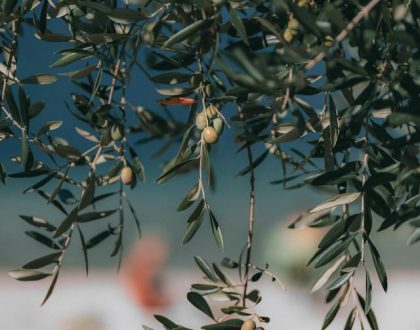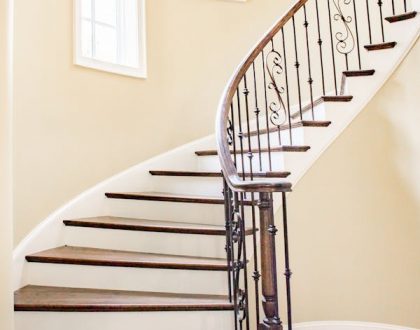Hajj
by Ayesha Khan
You probably know that Muslims performed Hajj recently, about the same time as term started. Muslims from around the world gathered in Makkah and spent at least five days in intense worship and travel between religious sites, including staying in tents.
In the time of our grandparents, Hajj was thought of as something people did when they were old. Something you do not long before you die. When my grandparents left for Hajj, they travelled by sea to get there. As it was an arduous journey, when people embarked on it, they would almost leave as if they were leaving for the last time, uncertain if they would come back. So typically they would say very fond farewells to everyone they knew.
When they returned, they returned as heroes. They got huge welcomes, wore flower garlands, were invited to dinner parties in their honour and they were given the title Haji. All around the Muslim world you will find shops called Haji Baba or Haji Farouk and so on, because their owners would have gone for Hajj and become known and respected in their community as Haji.
Before air travel, how did Muslims get to Makkah? They would assemble in three main points – Cairo, Damascus and Baghdad – and then make the journey together in a highly organised caravan. The journey would take up to forty days. They would be flanked by soldiers, for their security and to protect them from bandits in the desert, and there were officials in charge of their provisions, a chef, and cooks. They would march by night and camp in the day near wells to avoid the heat of the sun and rest in small fortresses dotted along their route. Even then the magnitude of the Hajj caravan during the 16th-18th centuries could include 60,000 pilgrims and 80,000 camels.
Fast forward thousands of years and Muslims are still arriving – except in larger numbers than ever before. So much so, that the Saudi government, despite having quotas limiting the people from each country, has to continually keep expanding the area around the Kaba to allow for more pilgrims. Nowadays there are over two million people. That’s a lot of people in the same place at the same time!
As air travel has transformed the old voyage to a long-haul flight, the Hajj is no longer the trip you make when you feel you’ve lived your life and are ready to meet God. In recent years the number of younger people going has increased, as there is growing awareness that there is so much to learn from Hajj, and that it is better to go sooner and bring its benefits back into our lives.
Ten years ago, I was blessed to get my own chance to perform it. So I wanted to share with you what Hajj is like, from someone who has been, and also give you an idea of what it feels like to be there.
Why do people call Hajj ‘the journey of a lifetime’? Is it because Muslims are required to do it once in their life? Or is it because it is an utterly unique experience?
The answer is both. Hajj is a trip most Muslims only make once in their lives if they get the opportunity to go (though there are some people who have been many times) but also it is completely unlike any other journey that one goes on.
The photos capture the fact an enormous size and energy of the crowds – the buzz, the movement. What that shot doesn’t capture, however, is what each pilgrim is feeling inside. So what are they thinking? What does it mean to them to be part of this gigantic throng? And why are they there?
In fact, I would say that no two people’s Hajj is the same. Each one will be experiencing it in a very personal way and creating memories of that moment that will boost their faith. You might wonder ‘how can that be?’ If you look at the photos, you see zoomed out shots of tiny white dots specks packed together tightly – anyone looking at a photo of Hajj would imagine that all those people congregated in the same place would be experiencing the same heat, being part of the masses, feeling the awe of seeing the Kaba, but I discovered that just as we all have different stamina, each individual’s personal journey is absolutely unique and they will be transformed by the end.
Before leaving a pilgrim will be feeling nervous. Some excitement, some anxiety, some bewilderment. What can they expect? Do they have what it takes? It feels like you have been chosen to attend the most prestigious gathering. That you are God’s guests and that He is hosting you. Arriving there, you feel hugely privileged and blessed to have the opportunity to get there, because there are so many people who sadly never get the chance. People whose visas didn’t get processed, or whose personal circumstances changed or who couldn’t afford it. One of the greatest gifts a Muslim can give is to pay for someone less fortunate than themselves to be able to perform their Hajj.
Once you arrive, you discover what it is like to be in a crowd. To be in queues, to be traffic jams, to wait. That is one of the lessons. Sometimes in life, we just have to wait. Sometimes there are no shortcuts. And we realise that we cannot control things, but no matter what situation arises, no matter how unexpected, we have to remain patient and grateful.
You discover that no one is more important than anyone else. It doesn’t matter what level of education you have, or wealth, or status or race and colour, you feel part of humanity. Connected to everyone.
Men are dressed as simply and humbly as it is possible to be – two pieces of white cloth, no collars, sleeves, buttons: like a new-born baby who comes into the world with nothing, we are reminded that we will leave with nothing. All that matters is that we recognise the truth in our lifetime and do good in the time we have.
We are taught the importance of being considerate to each other. People from practically all countries around the world sharing smiles and food. We are taught to be generous and love for others what we wish for ourselves. It is a lesson in tolerance and respect. Not everyone is easy to get on with. You will be in close proximity to those who you get on with easily, and perhaps who might annoy or irritate you. You have to learn to get along. In fact, it considered terrible if you lose your temper at any point. On the other hand, you also find that there are some people who you bond with instantly and with whom you make lasting friendships.
You discover how little you need in life. And how much we have complicated our lives. We eat simply, dress simply, sleep under the stars. The group I was travelling with managed to get separated from our luggage for the entire duration of our Hajj. We ended up without even the few things we had brought with us – clothes and shoes, toiletries, hairbrush, medicines, so whatever we had in our hand luggage, we had to share everything between us. It brought us even closer together. And I learned the value of travelling light – not just physically, but metaphorically. I realised that it was important to let go of grudges.
All the things that normally occupy our time melt away, for me that was housework, children, commitments, and all the day to day stresses that make us frustrated, or anxious. We are stripped of almost all material things – the whole range of things that we use, hoard, waste, or addicted to, all the things we define ourselves and judge others by.
It’s a strange feeling, to become distanced from your normal reality, and you realise that there are so many things that we feel are important that just don’t seem to be a big deal anymore. And you wonder, why did I think it was so important? It is the gift of Hajj to come back with this shifted perspective. This is the life changing, epiphany that people experience. Like someone who has had a near death experience and doesn’t go back to life as they lived it before, this is what transforms people.
It is like being given another chance to go back and live life knowing deep eternal truths that you hadn’t appreciated before.
It is the chance to return home a better version of yourself. Kinder, more patient and less petty.
The pilgrimage to this sacred place is not something that came about in the Prophet*’s lifetime – it was not something new that he started, but was the already the reason that people came to Makkah from all over the region, to worship God.
I felt it was bit like religious boot camp but in a good way. It felt good to focus on nothing but prayers for that time and reflect on your life. I met some incredible people who inspired me. The sprit which kept the elderly gong strong when the youngsters were crumbling was an example.
Hajj is a profound spiritual exercise wrapped in weary flesh and bone. Hajj is a stark reminder that every should will be held to account for our ancients and asking myself am I honourable, compassionate, and living to make a difference?
Hajj is my opportunity to explore what I know and the choices I made.
In the uncertain waters of life, faith fluctuates and we must dodge and rally just to stay afloat. But there are a rare set of moments glimpse of eternal truth, that steady the boat. Seeing the celestial magnificence of the Kaba was undoubtedly the most faith affirming moment of my life. There are no words to describe why.
I return to a bustling yet lonely world no longer creating a spiritual path, with millions of seekers wondering all the time I spend moving forward in my daily is really just running in circles.
When I asked my friends what their experiences of Hajj had been like, the overwhelming response I got was a complete sense of inner tranquillity and peace. These are some of the things they said:
It was a spiritual honeymoon. I felt at one with Allah and contented with Allah. I was aware of his immense blessing and felt so very grateful. I felt an acceptance of all the things I had experienced in life, the good and otherwise.
Hajj just brings a calmness in you. I could just spend the rest of my life being in Makkah and looking at the Kaaba, nothing more fulfilling and peaceful than that.
Hajj was a period of immense peace, seclusion, reflection on Allah’s favours and reorientation in life. It was a great gift and an opportunity for lasting friendships.
This was a very special spiritual journey for me during which I experienced the feeling of complete happiness and camaraderie the likes of which I had never imagined before.
Heat. A disjointed chorus of hopeful prayers. Millions of human hearts seeking redemption. Hajj is the union of intense inward and outward experiences, birthing a renewed spirt. Several million people of every race descend upon Makkah. Uniformity of rituals, garb, and shared exhaustion. The great leveller of king and pauper, those of every colour, race and creed stand before God as absolute equals, judged only by the contents of their character.
Having experienced it myself, I think it’s a unique time to look inwards at yourself and to reflect on what is important to you and what isn’t when you are removed from everything that is familiar to you and given the chance to focus solely on prayer and your connection with God.
To come back feeling reborn, with a fresh perspective and a better person.
Hajj, as another put it, is the beginning of the journey, not the end.
*peace be upon him
Written by Ayesha Khan in 2016
Recommended Posts

Masjid al Aqsa – why it has a very special place in our hearts
November 29, 2023

Palestine: The Holy Land
November 23, 2023

